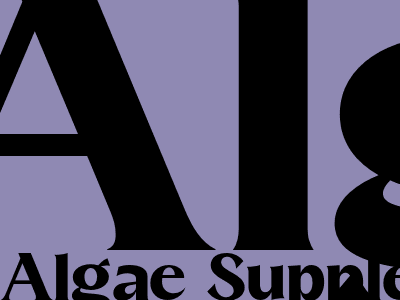Algae Supplement: A Promising Superfood for Health and Environment
The Benefits of Algae as a Food Source
Algae, a diverse group of aquatic plants, are increasingly gaining recognition as a valuable food source due to their nutritional richness and sustainability. They are packed with essential nutrients, including protein, vitamins, minerals, and antioxidants, making them an excellent choice for a plant-based diet.
One of the most notable benefits of algae is its high protein content, which rivals that of animal products. The protein in algae is highly digestible and contains all the essential amino acids required for human health.
Additionally, algae are a good source of dietary fiber, which promotes satiety and supports digestive health. They are also rich in antioxidants, such as chlorophyll, which protect cells from damage and reduce inflammation.
Environmental Benefits of Algae Cultivation
Beyond its nutritional value, algae cultivation offers significant environmental benefits. Algae have the unique ability to absorb carbon dioxide from the atmosphere, contributing to the fight against climate change.
Moreover, algae can be cultivated in a variety of environments, including saltwater, brackish water, and wastewater, using minimal resources. This makes them a more sustainable alternative to traditional land-based agriculture, which requires large amounts of water, fertilizers, and pesticides.
The cultivation of algae also produces a substantial amount of biomass, which can be used for various purposes, such as biofuel production and soil enhancement.
The Future of Algae as a Superfood
With its impressive nutritional profile and environmental benefits, algae is poised to become a significant player in the future of food. Research is ongoing to explore new and innovative ways to incorporate algae into our diets.
From algae-based protein powders to functional foods and beverages, the possibilities are endless. As consumer awareness of the benefits of algae grows, we can expect to see this superfood play an increasingly important role in promoting human health and environmental sustainability.
In-Depth Exploration of Algae's Nutritional Composition
Protein: Algae is a complete protein source, containing all the essential amino acids required for human health. It is particularly rich in lysine and arginine, two amino acids that are often limiting in plant-based diets.
Vitamins: Algae is a rich source of vitamins, including vitamin A, vitamin C, and vitamin B12. Vitamin A is essential for vision, immune function, and cell growth. Vitamin C is a powerful antioxidant that helps protect cells from damage. Vitamin B12 is essential for neurological function and red blood cell production.
Minerals: Algae is an excellent source of minerals, including iron, calcium, and iodine. Iron is essential for oxygen transport in the body. Calcium is essential for bone health and muscle function. Iodine is essential for thyroid hormone production.
Antioxidants: Algae is rich in antioxidants, including chlorophyll, carotenoids, and phycocyanin. Chlorophyll is a green pigment that helps protect plants from damage. Carotenoids are orange and yellow pigments that have antioxidant properties. Phycocyanin is a blue pigment that has anti-inflammatory properties.
Types of Algae Supplements
Algae supplements come in a variety of forms, including powders, capsules, and tablets. The most common types of algae used in supplements are:
- Chlorella: A single-celled green algae known for its high protein and chlorophyll content.
- Spirulina: A blue-green algae known for its high protein content and immune-boosting properties.
- Kelp: A brown algae known for its high iodine content and antioxidant properties.
- Dulse: A red algae known for its high iron content and antioxidant properties.
When choosing an algae supplement, it is important to look for products that are certified organic and third-party tested for purity and safety.
Dosage and Safety of Algae Supplements
The recommended dosage for algae supplements varies depending on the type of algae and the individual's nutritional needs. It is generally recommended to start with a low dose and gradually increase it over time.
Algae supplements are generally safe for most people. However, some people may experience side effects, such as nausea, stomach upset, or headache. If you experience any side effects, discontinue use and consult a healthcare professional.
Conclusion
Algae is a nutrient-rich and sustainable superfood with the potential to improve human health and the environment. With its high protein content, essential vitamins and minerals, and antioxidant properties, algae offers numerous benefits for those seeking a healthy and sustainable lifestyle.
As research continues to explore the potential of algae, we can expect to see this superfood play an increasingly important role in our diets and contribute significantly to our health and well-being.

Komentar